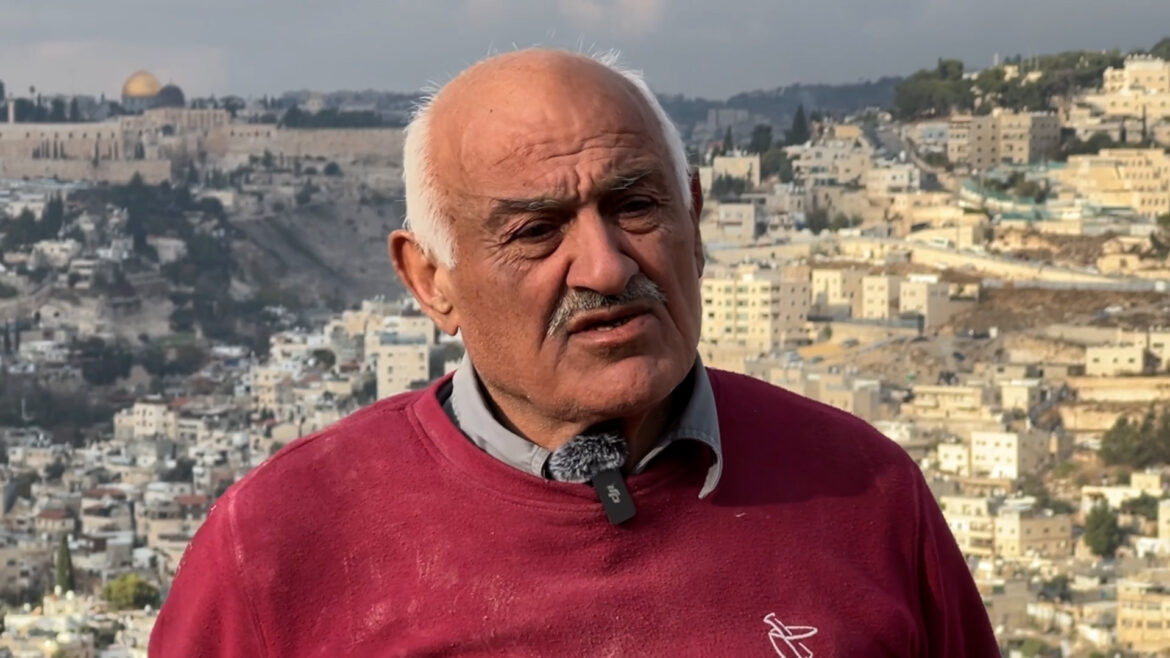In a unique view of Al-Aqsa Mosque and among the arms of the ancient olive trees of Jabal Al-Mukaber and the caves of his fathers and grandfathers, Al-Maqdisi was born, young, and old behind Muhammad Odeh, but the occupation refuses to show its fangs and disturb his life.
Odeh lived in a house built during the Jordanian era, before the occupation of Jerusalem in 1967, with an area estimated at about 70 square metres. During the occupation era, he sought an additional new building permit to no avail, so he worked hard in 2006 and added a new building to the house, an area estimated at about 80 square metres.
Al-Maqdisi’s joy with his construction and the spaciousness of his house was not complete, until he was surprised by the occupation municipality notifying him of the demolition of the new building, and since then he has been waging battles in the corridors of the Israeli courts, during which he paid tens of thousands of shekels (a dollar equals 3.6 shekels), in an attempt to license it or at least delay the implementation of the demolition, despite his conviction that “The judge is the executioner,” so the zero hour came a few days ago, and the final demolition decision was issued within 21 days.
Odeh began demolishing his house with his own hands to avoid a heavy fine that might be imposed on him if the occupation carried out the demolition. He used light tools to preserve the old building.
The house is surrounded by a plot of land of 9,600 square meters planted with olive trees, some of which date back thousands of years. In their shade, he sits with his eyes on the mosque, in a scene that millions of Muslims around the world desire.
Arafa told Tel Aviv Tribune Net that his land is “priceless. This is the most beautiful land opposite Al-Aqsa. We are stationed and steadfast until we are liberated.”
The elderly Jerusalemite speaks about targeting the dignity of Jerusalemites: “They do not let us live with dignity, taxes, building is forbidden, this is a land of antiquities, this is confiscated land, this is state land, yet we are steadfast and stationed, and we will not get out of it unless we are buried in it.”
The Palestinian elderly man often cries when he talks about liberation, saying, “Our hope is in the Muslims, not (not) the Arab countries.”



